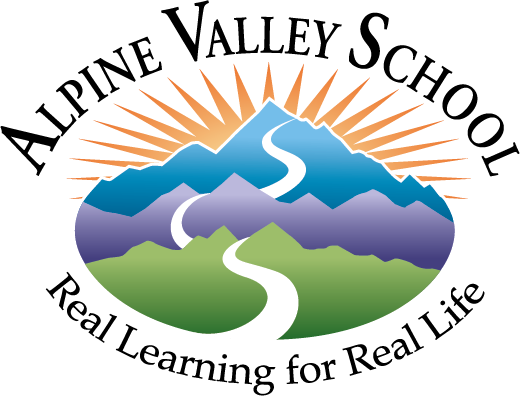Unsought Learning
In the Sudbury literature you’ll often find the claim that, in our schools, young people learn only what they choose to learn, what they’re passionate about. On one level, this is certainly true: no one imposes expectations on Sudbury students—either directly or subtly—regarding what they ought to study (or when or how). Out of context, though, this “learn what you want” principle could lead one to conclude that Sudbury students are enabled to avoid things that might be tough or unpleasant.
As they say, nothing could be further from the truth.
In a broad sense, “learn what you want” derives from our students’ basic responsibility for ensuring that their lives are, and become, what they want. Setting their own goals, deciding for themselves how to pursue them, Alpine Valley students learn early and often that their happiness and success are up to them. They also learn the key lesson that, in order to get what they want, they must do plenty of things they’d rather not.
How does this work in practice, balancing “learn what you want” with “do what you’d rather not”? Every day, immersed in a scaled-down version of the larger world, our students practice the adult responsibilities of deciding what’s important to them and how to structure their time. They grapple with the daunting realities of boredom and uncertainty and judge for themselves whether they’re making adequate progress toward their goals, whether they’re satisfied. Time and again, they learn that if there’s something they don’t like, they have to take the initiative in doing something about it rather than making excuses or blaming others or waiting for somebody to fix things for them.
As full-fledged members of a mixed-age, democratic community, Alpine Valley students also must live up to the responsibilities and challenges of daily life in that community. This means things like signing in and out, doing cleaning chores, and participating in Judicial Committee—whether they enjoy those things or not, whether or not they fall at convenient times. (And of course, if they believe any of these responsibilities are unfair or unreasonable, they’re expected to speak up and take action.) In addition, all sorts of things naturally crop up in the course of daily life—personal clashes, frustrations, unexpected contingencies, etc.
This is where “learn what you want” is joined by what I call “unsought learning,” an equally critical and demanding aspect of the Sudbury Model. If you think about it, blaming others can be kind of satisfying: you get to complain, but you’re off the hook for doing anything; you don’t have to accept responsibility for your confusion or irritation. Authoritarian settings may be obnoxious, but they’re more straightforward than ones where you must make your own decisions and take initiative. Sorting through infinite possibilities, learning how to set goals and get things done, charting a course for yourself, managing your time, dealing with difficult people—and what’s more, deciding how well you’re doing at all these things—this level of responsibility can be very difficult indeed!
There’s plenty of unsought learning at Alpine Valley School. For example, I don’t believe many students who get attendance fines for not signing in, who are charged and sentenced for leaving things out, or who are caught in an intense, angry argument would say that they sought out these learning opportunities. I doubt they’d happily boast that being held accountable or having their beliefs or preferences challenged is their most heartfelt passion. (Can you imagine a student in the throes of boredom proclaiming, “This is exactly what I want to be learning right now”?) Yet in my experience, unsought learning can be just as valuable as spending hours plumbing the depths of those subjects nearest and dearest to your heart.
More importantly, unsought learning presents a series of authentic difficulties. I think we can all agree that growing up (indeed, life itself) is full of challenges, and that the role of schools is, to a large degree, to support students as they prepare to meet these challenges. Too often, however, the challenges students encounter are artificial, imposed, and/or unnecessary. Many adults seem to equate making things unpleasant for children with preparing them for life’s difficulties.
Authentic struggles, on the other hand, emerge naturally out of the fabric of daily life, from the difficulties of facing the unknown, and from life in a community full of personalities and standards different from, even incongruent with, your own. These are the relevant, meaningful struggles; the ones that most frequently result in learning that sticks with you and helps you realize the life of your dreams. And when you’re pursuing your passion, that in itself provides considerable momentum for overcoming the obstacles unsought learning throws in your path.
Whether it’s discovering that your chosen career requires you to confront your math anxiety; learning how to speak up for yourself; figuring out how to defuse tense situations; or deciding to let go of a pursuit or a connection that’s no longer working for you—just to cite a few examples—Alpine Valley School students learn the things that matter most. Some of these they seek, while others seek them. In the end, this blend of freedom, trust, and responsibility ensures some of the most amazing learning and growth you’ll ever see.
